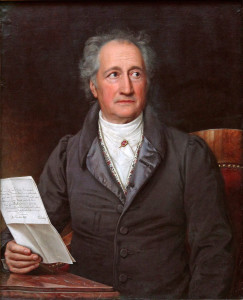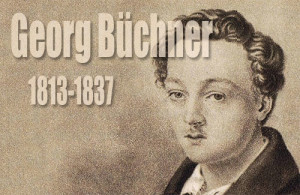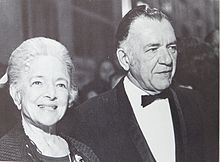The Influence of J.M.R. Lenz’s The Soldiers on Brecht’s Mother Courage and Her Children
[This is the second part of a series that considers the role of Lenz in shaping modern drama.]
Reception of the dramatic oeuvre of J. M. R. Lenz has been mixed, more often dismissive or negative than positive for more than two hundred years. Lenz, as a creative artist who parodied Enlightenment society with instinctual playfulness, posed problems for most pre-modern critics, who, as devotees of reason and descendents of Enlightenment thought themselves, leaned toward humorless, overly literal interpretations of his aesthetic intentions. The irrational aspect of the creative process, so important to all makers of art, in Lenz’s work has been trivialized as a sign of his pathology, his inability to repress tokens of his madness. Most damaging of those who perpetuated this trivialization was Goethe who, long after Lenz’s removal from Weimar, remained guarded over the dangers his former friend’s behavior posed to his own long-term reputation. Goethe’s attachment to classicism solidified Lenz’s poor image for decades, as the great man ignored his productivity in Strasbourg and cast him as “whimsical” and ”like a sick child,” someone “whose days were made up of mere nothings, to which he was able to give a meaning by his activity.”26 Since Goethe first applied it, this word “whimsical” has been used by almost every critic and historian who has written about Lenz as a code word for insane. Roy Pascal states that Goethe’s treatment of Lenz in his autobiography Poetry and Truth is “a rare instance of personal injustice.”27
More prescient is what Goethe has to say about Lenz in this passage:
His talent came from a real depth, from inexhaustible creative power, in which tenderness, versatility, and subtlety rivaled each other, but with all its beauty it was sickly at every point, and it is just these talents which are the most difficult to form a judgment.28
Leidner and Wurst’s book-length study Unpopular Virtues: The Critical Reception of J.M.R. Lenz documents this difficulty of coming to a critical consensus about Lenz and his “sickly beauty” from the 1770s to the close of the twentieth century. The authors point out that Lenz’s unwillingness to flatter audiences by depicting “weak heroes, weak families, and communities out of order” prejudiced reception against him in his time and beyond. “The critical reception of his work is Germany’s abiding inability to turn away from the pleasures of a fictive collective personality.”29
Lenz’s first play The Tutor was published anonymously in 1774 by Christian Friedrich Weygand (1743-1806), who had established himself as the most important publisher of the Sturm und Drang by printing Goethe’s The Sorrows of Young Werther. Lenz’s play was well reviewed for its bold realism and the author’s attempt to create a German drama distinct from French neoclassicism. His next two plays, The New Menoza and The Soldiers, were setbacks in his critical reception. Though neither contained anything as graphically disturbing as the castration scene in The Tutor, by the mid 1770s the Sturm und Drang movement had begun to question its own extravagance. Peers and critics who had applauded The Tutor had their doubts about The New Menoza and its spoofing of Enlightenment values. The Soldiers, with its pessimism and barracks-style language, met even greater disfavor. Lenz was a social realist who refused to oblige readers wanting flattering reflections of themselves, and he had begun to alienate the public with his middle class anti-heroes and brutal honesty.
At the turn of the century Lenz’s reception didn’t improve, largely because Romanticism, like Weimar Classicism, avoided the social conditions of its day. Writers such as Clemens Brentano glorified Lenz as a melancholy outsider and misunderstood poet, but this eagerness to sympathize with his personality clouded the Romantic’s understanding of Lenz as a social commentator.
Georg Friedrich Dumpf (1777-1849), a little known scholar and Livonian medical doctor, made the nineteenth century’s first major push toward a Lenz biography. Dumpf gathered critical information regarding his life by writing to his family, his friends at Königsberg, former Stürm-und-Dränger Klinger in St. Petersburg, and even visiting Karamsin in Moscow. In 1820 he wrote to Ludwig Tieck (1773-1853) proposing an anthology of Lenz’s work. Eight years later, Tieck, making use of materials that Dumpf had gathered, put together a three-volume edition, an important event in Lenz scholarship. Not the admirer of Lenz that Dumpf was, Tieck had agreed to have this tribute published due to his fascination with Goethe. He believed that exposure to Lenz’s writing would shed new light, through comparison, on Goethe’s genius. The most important effect of this edition is that through it Georg Büchner came to know Lenz’s work.
Inspired by Lenz’s The Land Preacher (1776), Büchner wrote his rebellious pamphlet The Hessian Courier (1834). Later under police interrogation, Büchner was forced to deny authorship of this pamphlet. He then turned to the stage as a means of activism against the reactionary caste system of post-Napoleonic Europe. Lenz the social realist was a natural model for Büchner. His world-acclaimed fragment Woyzeck would have been “unthinkable,” as Helga Madland and Alan Leidner have written, without Lenz’s The Soldiers.30 Büchner, like later writers in the Lenz tradition, demonstrated his affinity for his Sturm-und-Drang predecessor, not by praising him in theoretical writing, but by emulating his dramatic practice.
For much of the nineteenth century Lenz’s biographical or historicized reputation as mad poet and doomed lover of Fredericke Brion overshadowed interest in his work. Toward the end of the nineteenth century the dramatists of Naturalism saw an ally in Lenz for his realistic portrayal of everyday life and his combative stance against age-old traditions of the theatre. Karl Bleibtreu (1859-1928) regarded Lenz as “unsurpassed in unmediated truth, the truth of life and character.”31 Max Halbe (1865-1944) praised Lenz for his opposition to the timeless realm of Weimar Classicism. 32
During the twentieth century Lenz’s work was repellent to both the extreme right, as voiced by Adolf Bartels in what would be a preview of the attitude of National Socialism of the 1930s, and the extreme left, as voiced by the utopian Marxist George Lukaćs in the 1950s. Bartels referred to Lenz’s plays as “monstrosities whose attractions lie only in the characterizations, and in individual scenes.”33 Lukaćs criticized Lenz’s plays for their pessimism and embraced the heroic idealism of Goethe’s classicism. Ideological movements such as fascism and communism depended on an idealized notion of the German public evolving from the glorious Volk of the past into a perfect future society. To believers in such totalizing visions, Lenz was not welcome.
Brecht’s adaptation of The Tutor in 1950 instigated a postwar renewal of interest in Lenz. Heiner Müller, the East German playwright and Brecht follower, spoke for many in resisting Lukaćs and supporting a turn away from Weimar Classicism. Müller regretted the neutralization of Sturm und Drang by Weimar Classicism and his view mirrored Lenz’s discomfort with Goethe at the ducal court. Müller described Weimar Classicism as “Literature of a vanquished class, form as adjustment, culture as a set of formal manners for intercourse with the ruling power, and as vehicle for false consciousness.”34 In 1968, in the commentary that appeared with the operatic adaptation of The Soldiers, Heiner Kipphardt wrote of the play as “one of the key works in the history of the German theatre. Its influence can be traced through Büchner, Grabbe, Wedekind, Brecht, Horvath, up to the contemporary German Drama.”35
As the 200th year anniversary of Lenz’s death neared in 1992, Lenz became a subject of lively scholarly interest. Bicentennial celebrations of Lenz’s death inspired a wealth of new criticism and international symposiums in Oklahoma (1991), Hamburg (1992) and Birmingham, England (1993).





Recent Comments